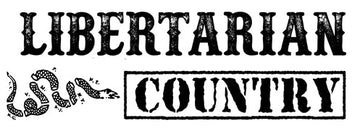Experts Are Human Too
We live in an age where the word expert is treated like a magical incantation. Someone with a PhD or a government title steps up to a microphone, and suddenly the general public is expected to bow, nod, and stop thinking for themselves.
But here’s the inconvenient truth: a scientist in one field isn’t automatically an expert in another. A brilliant physicist may not know a thing about nutrition. A virologist may not understand economics. Credentials in one arena don’t automatically qualify someone to speak with authority in all others.
This isn’t an attack on expertise—it’s a reminder that even the most credentialed minds have limits. Experts can be wrong, biased, or simply outside their lane. And when those experts are being paid to stand behind a government podium, skepticism isn’t cynicism—it’s common sense.

Why Ordinary People Must Think Critically
Critical thought isn’t a luxury for the academic elite; it’s a civic responsibility. Ordinary people must practice skepticism, ask questions, and follow evidence wherever it leads. Blind trust is a recipe for disaster, and history has shown us plenty of disasters that came gift-wrapped in expert consensus.
The ordinary citizen is not disqualified from reason just because they don’t have a PhD. In fact, some of the most important breakthroughs in history have come from outsiders and dissenters who questioned the “settled science” of their time. You don’t need a lab coat to recognize when an argument smells fishy.
Government Spokespeople and the Illusion of Authority
When you see an “expert” hired by a government agency standing at a podium, it’s wise to remember one thing: they’re not just scientists, they’re spokespeople. Their job isn’t always to give you the raw, unfiltered truth—it’s to deliver a message, often massaged to fit a policy goal. That doesn’t make them evil, but it does make them fallible. And it means citizens should bring their own reason, evidence, and yes, a healthy dose of skepticism to the table.
The Danger of Replacing Experts with Influencers
Here’s the flip side: rejecting expertise altogether is just as reckless as blindly worshipping it. A YouTuber with a slick thumbnail or an influencer with a million followers isn’t automatically a source of wisdom. Popularity is not proof. Influence is not evidence. Just because someone sounds confident—or makes you laugh—doesn’t mean they know what they’re talking about.
The internet has given us a flood of “alternative experts” who speak outside their wheelhouse just as often as the credentialed ones do. The difference is that influencers aren’t held to peer review, rigorous testing, or even basic fact-checking. Critical thinking means applying the same skepticism to both ends: don’t hand your brain to government-approved experts, but don’t hand it to conspiracy-peddling influencers either.
Humor in the Madness
Of course, none of this means we should live in paranoia, rejecting everything experts say. If your mechanic tells you your brake pads are shot, don’t roll your eyes and say, “Nice try, government stooge.” The point is balance: value expertise within its proper scope while remembering that experts are not demigods.
Think of it this way: you wouldn’t ask Gordon Ramsay to perform your open-heart surgery, and you wouldn’t ask your cardiologist to cook you Beef Wellington. Stay in your lane applies to everyone—even the most credentialed.
The Takeaway
The value of expertise lies in its depth. The limitation of expertise lies in its narrowness. Experts are essential—but they are not oracles. Ordinary people must still practice critical thought, question everything, and follow the evidence. That is how free societies stay free: not by outsourcing thought, but by exercising it.
But let’s be clear: the antidote to blind trust in experts is not blind trust in influencers. The antidote is your own reason. Trust evidence, trust logic, and never stop asking questions.
At the end of the day, the best “expert” you’ll ever have is your own ability to think critically.
Keep thinking, it's not illegal yet! 👇

